In today's business world, maintaining ethical standards is more crucial than ever, especially when it comes to vendor relationships. A vendor code of conduct serves as a guiding framework, ensuring that all parties adhere to principles of integrity, respect, and accountability. By establishing clear expectations, businesses can foster stronger partnerships and a more sustainable supply chain. Curious about how to implement an effective vendor code of conduct in your operations? Read on to discover actionable insights and comprehensive templates!
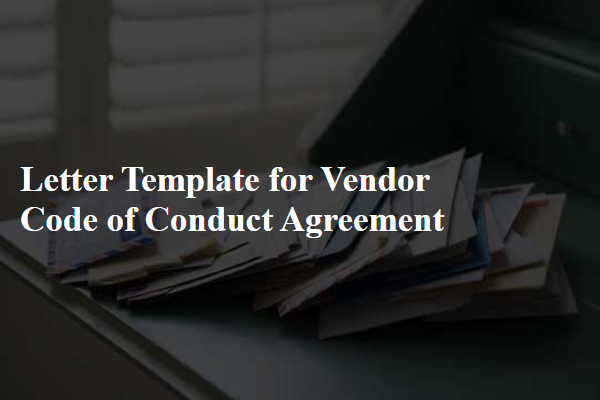
Vendor Information Section
Vendors must provide essential information to align operations with ethical standards outlined in the Vendor Code of Conduct. This section includes comprehensive details about the vendor's legal name, business structure, address, and contact information. Specific identification numbers, such as the Tax Identification Number (TIN) or Employer Identification Number (EIN), should be included to ensure proper documentation. Additionally, the vendor must disclose ownership status, including names of principal owners or shareholders, to promote transparency. All relevant certifications, such as ISO 9001 for quality management or Fair Trade certification, must be submitted to demonstrate compliance with industry standards. Furthermore, details regarding previous agreements, past performance history, and any affiliations with regulatory bodies should be provided to ensure a trustworthy partnership.
Ethical Standards Clause
Vendors must adhere to strict ethical standards in all business operations. This includes maintaining compliance with applicable laws and regulations, including labor laws protecting workers' rights and environmental regulations ensuring sustainability. Vendors are expected to provide fair wages, safe working conditions, and non-discriminatory practices across all employment policies. Transparency in transactions is crucial, alongside the prohibition of corruption or bribery in any form. Furthermore, vendors should implement waste reduction practices and responsible sourcing of materials, particularly in industries heavily reliant on natural resources. Adherence to these ethical standards is vital for maintaining trust and integrity within the supply chain.
Compliance with Laws Statement
Vendors participating in business with multinational corporations must adhere to stringent compliance with laws that govern ethical conduct and business operations. Legal frameworks, such as the Foreign Corrupt Practices Act (FCPA) in the United States, enforce prohibitions against bribery and corruption, while local laws enforce standards of labor practices and environmental protection. Vendors must ensure that all operations, from supply chain management in manufacturing hubs like China to labor practices in factories located in Bangladesh, comply with applicable regulations, including those set forth by the International Labour Organization (ILO). Additionally, companies must maintain transparency in financial reporting to satisfy regulations from governing bodies like the Securities and Exchange Commission (SEC) to avoid potential legal repercussions. Adhering to these laws not only fosters responsible business practices but also cultivates trust with consumers and stakeholders alike.
Confidentiality Agreement Provision
The confidentiality agreement provision emphasizes the importance of safeguarding sensitive information exchanged between parties during the course of business activities. Confidential information includes trade secrets, proprietary data, and client information, typically protected under legal frameworks. Vendors must implement reasonable security measures to prevent unauthorized access to this data, ensuring compliance with regulations such as the General Data Protection Regulation (GDPR) of the European Union. Breaches of confidentiality may result in legal penalties, loss of trust, and reputational damage for both the vendor and the organization. Proper training for employees regarding confidentiality protocols is essential to mitigate risks associated with data leaks and to uphold the integrity of business relationships in competitive markets.
Termination and Amendments Clause
Termination of the Vendor Code of Conduct Agreement can occur under specific conditions, ensuring compliance with ethical standards. Breaches of the code, including violations of labor laws, environmental regulations, or any fraudulent activities, may lead to immediate termination of the agreement, irrespective of prior warnings. Amendments to this agreement require mutual consent from both parties and must be documented in writing, specifying the changes in detail. This ensures that both the vendor and the purchaser adhere to updated regulations and ethical considerations, fostering a transparent and accountable relationship. Regular reviews of the agreement are advised, ideally on an annual basis, to accommodate any evolving laws or industry standards that may arise.

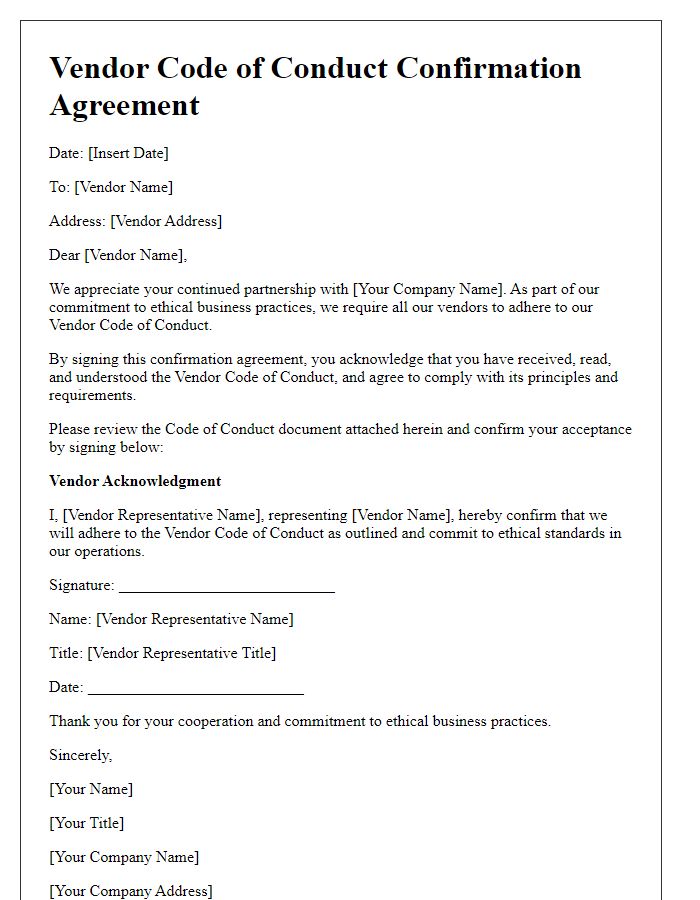
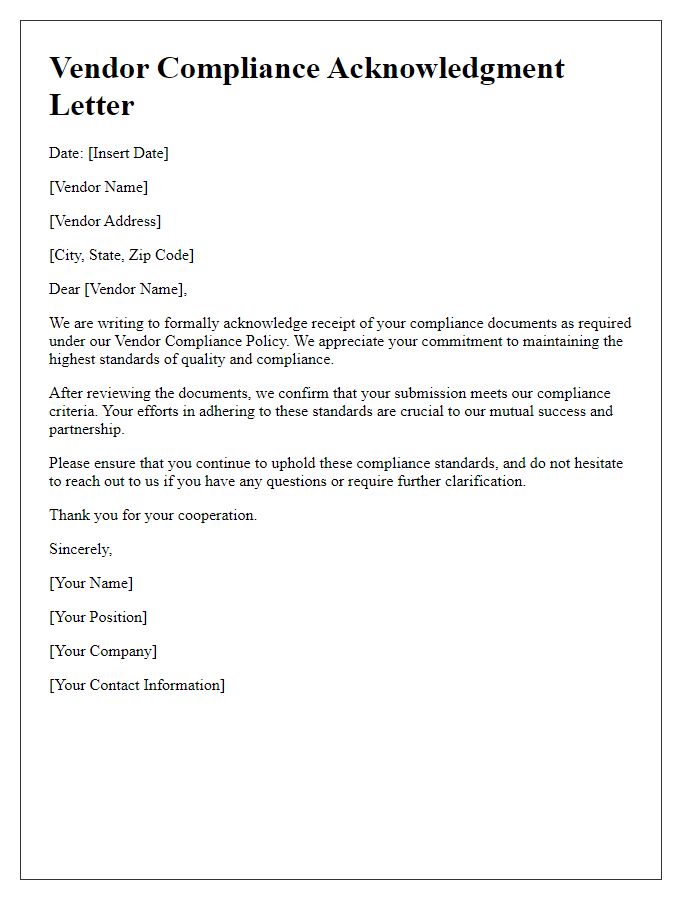
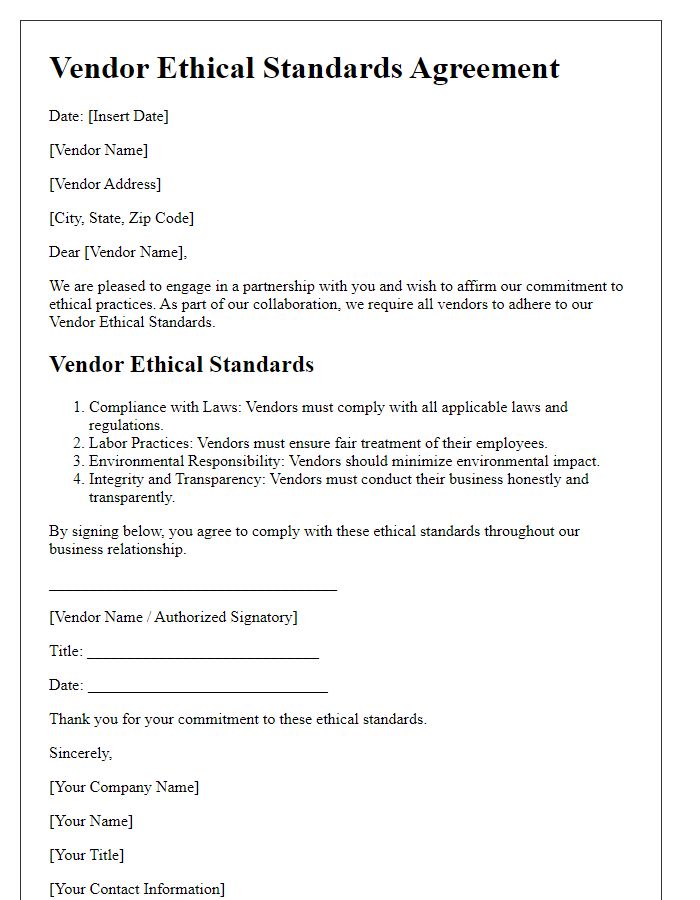
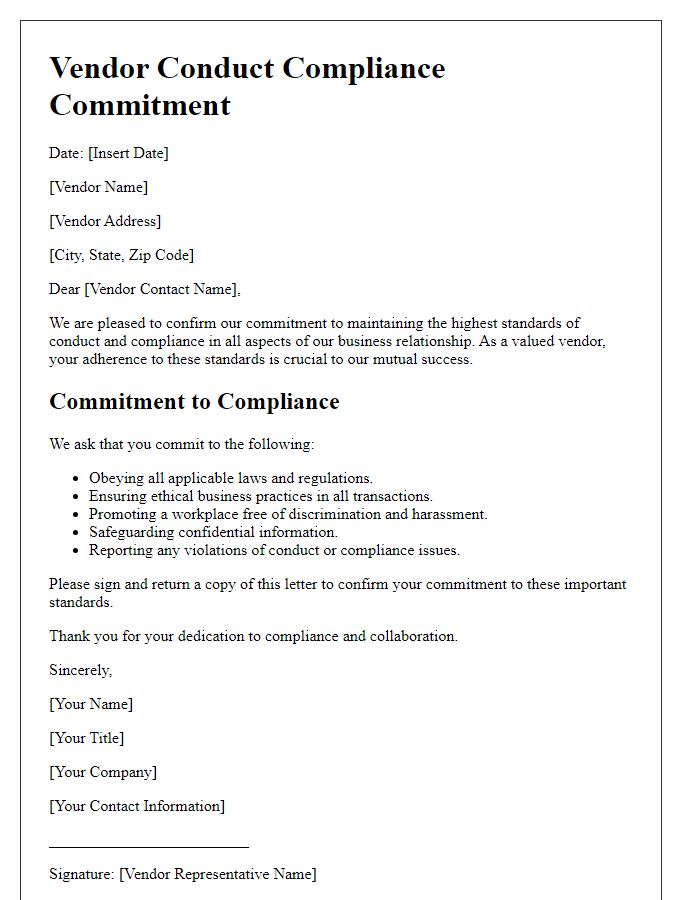
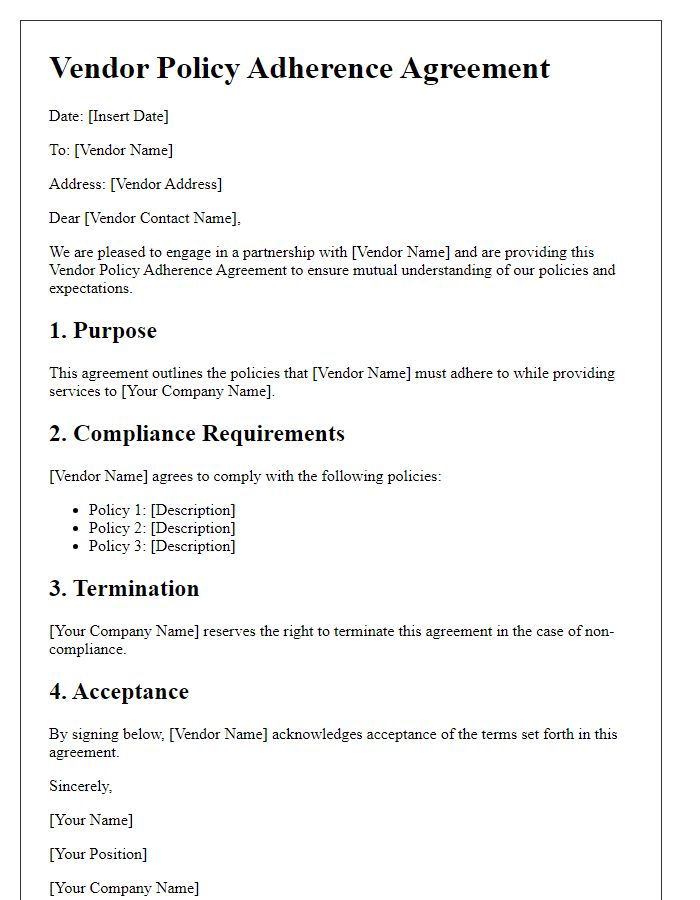
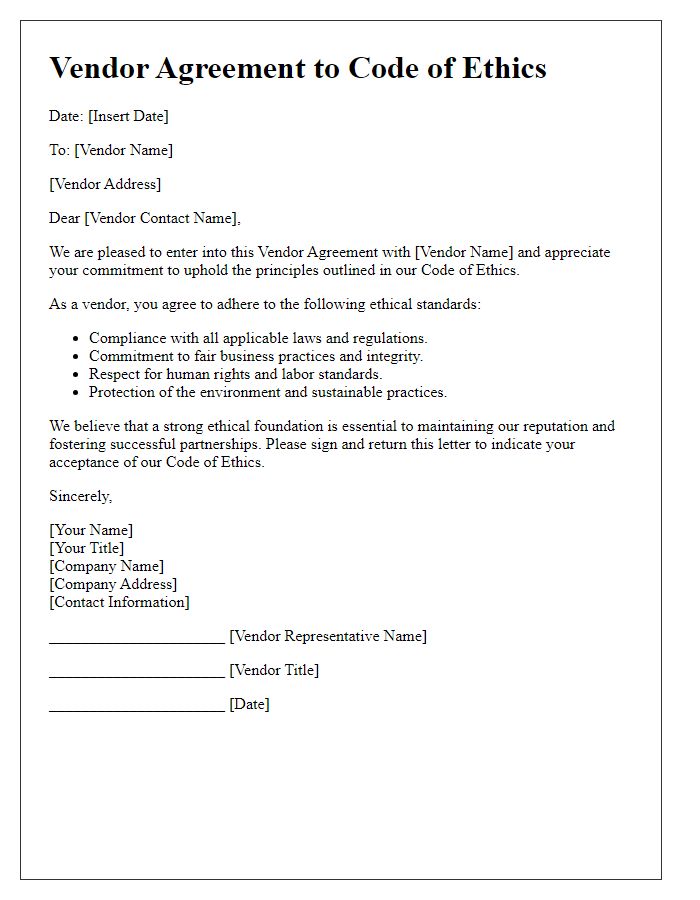
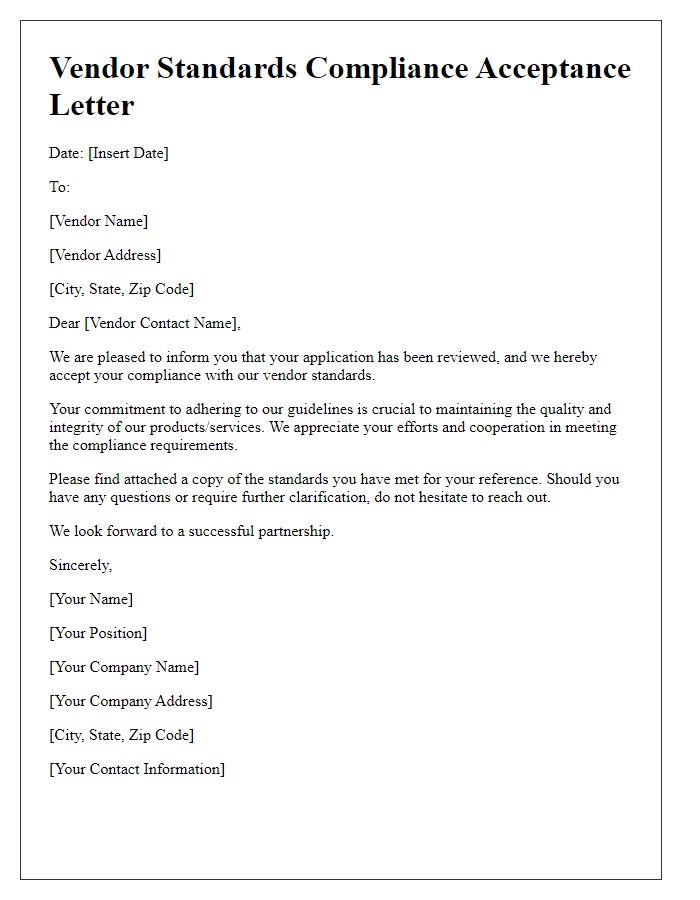
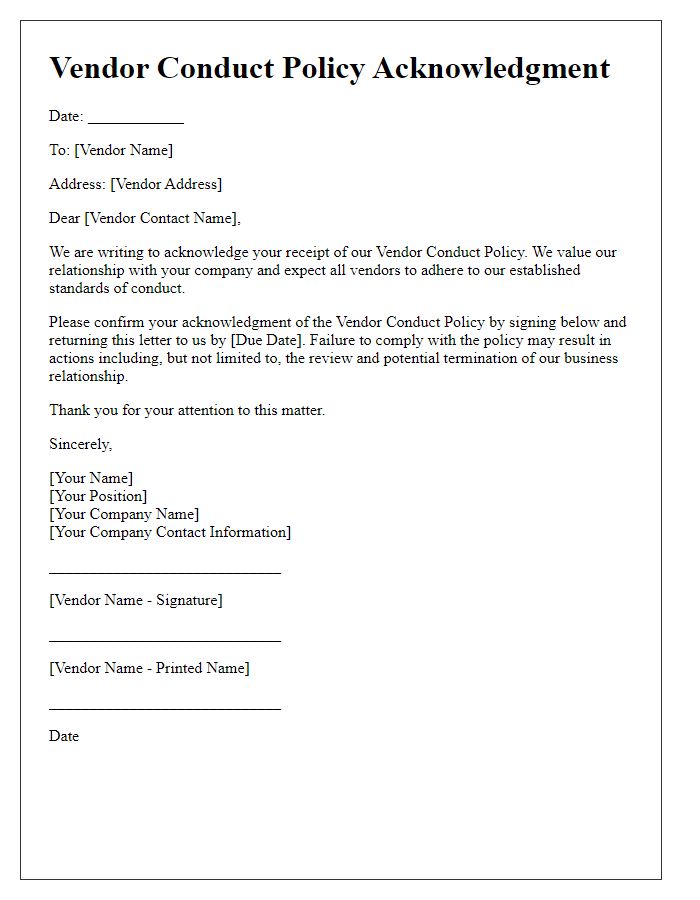
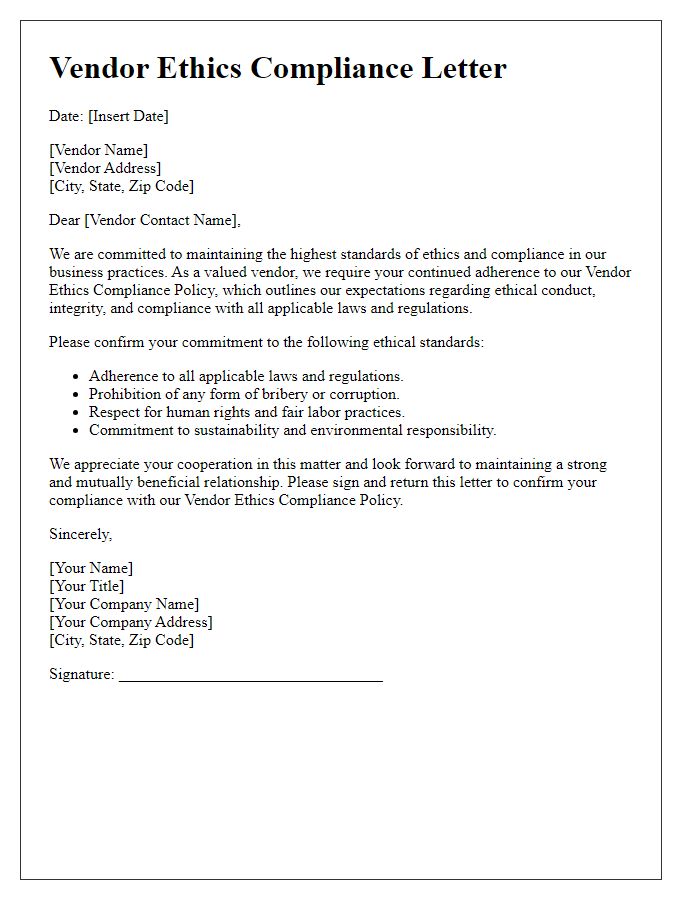
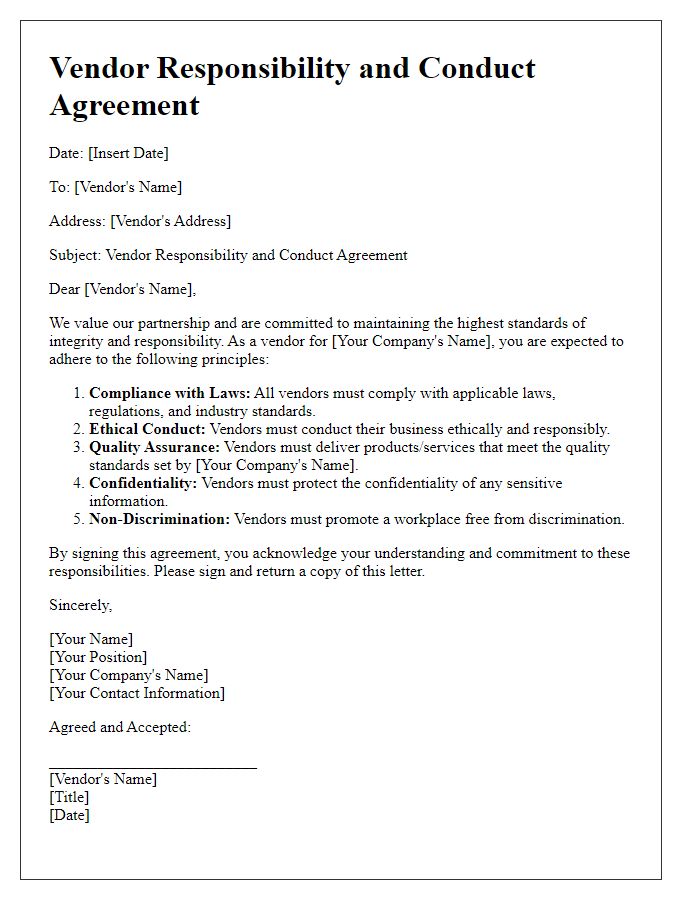


Comments